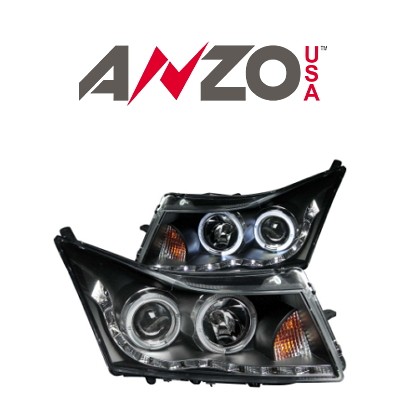The Art and Science of Less-Than-Truckload Logistics [USA & Canada]
The wheels of commerce turn smoothly on the axles of logistics, and in the vast landscapes of the USA and Canada, this couldn’t be truer. The interplay of highways, economic zones, and consumer demand has fostered a thriving ecosystem for Less-Than-Truckload (LTL) shipping – a method of transportation that fills a crucial niche for businesses dealing with shipments smaller than a full truckload. With the increasing global interconnectedness, the role of professional transportation, especially LTL shipping, has become an indispensable segment in bolstering international trade and commerce.
Defining Less-Than-Truckload Shipping
Less-than-truckload, or LTL, is a transportation method wherein cargo from multiple shippers is consolidated into a single truck. Unlike full truckload shipments, which transport the cargo of one shipper at a time, LTL enables various shippers to share space on the same truck, thus optimizing costs and resources. This method is particularly beneficial for small to medium-sized enterprises (SMEs) or businesses with fluctuating shipping volumes that do not require the space of an entire truck. See details of LTL shipments along with the terms and conditions on the website of Divine Trans, one of the professional transportation companies: https://www.divinetrans.com/page/professional-transportation-of-less-than-truckloads.
![The Art and Science of Less-Than-Truckload Logistics [USA & Canada] LTL Shipping](https://halo-headlights.com/wp-content/uploads/2023/11/LTL-Shipping.jpg)
How LTL Works
LTL shipments in the USA and Canada operate within a complex network of local terminals and central hubs. Here’s the typical journey of such a shipment.
- Collection. Goods are collected from various shippers and brought to a local terminal.
- Sorting and Consolidation. At the terminal, shipments are sorted and consolidated according to their destination. Shippers only pay for the portion of the truck their goods occupy, which is calculated based on the weight and space used.
- Line Haul. Consolidated goods are transported to a central hub or directly to a regional terminal close to the final destination.
- Distribution. Upon reaching the regional hub, shipments are again sorted for delivery to local terminals.
- Final Delivery. From the local terminal, goods are delivered to their final destinations.
Benefits of LTL Shipping
- Cost Efficiency. By only paying for the space used, shippers can significantly reduce shipping costs.
- Flexibility. LTL offers the flexibility to ship smaller quantities of goods without waiting to fill an entire truckload.
- Environmental Impact. Consolidating shipments leads to fewer trucks on the road, which translates to lower carbon emissions.
- Added Services. LTL carriers often provide additional services like liftgate service, inside delivery, and notification options.
Challenges in LTL Shipping
The LTL shipping industry faces its own set of challenges:
- Complex Pricing. LTL pricing can be intricate, with costs determined by factors such as freight classification, distance, weight, and additional services.
- Damage Risk. Handling freight multiple times increases the risk of damage.
- Transit Times. LTL shipments may have longer transit times compared to full truckloads due to the consolidation and deconsolidation processes.
Ensuring Efficiency
Professional LTL carriers in the USA and Canada mitigate these challenges through:
- Technology Integration. Modern tracking systems and logistics software provide real-time data, optimize routes, and manage inventory.
- Expertise. Experienced logistics personnel navigate the intricacies of cross-border regulations and customs.
- Infrastructure. Investments in the right equipment, from fleets with climate control to advanced loading docks, ensure the safe and timely delivery of products.
How to Select a Reliable LTL Shipping Company?
Selecting a reliable Less-Than-Truckload (LTL) shipping company is a crucial decision for businesses that depend on the efficient and safe transportation of their goods. The right LTL carrier can help streamline your supply chain, reduce costs, and ensure your products reach their destination on time. Here are key considerations to make when choosing a dependable LTL shipping partner.
![The Art and Science of Less-Than-Truckload Logistics [USA & Canada] LTL Shipping Explanation](https://halo-headlights.com/wp-content/uploads/2023/11/LTL-Shipping-Explanation.jpg)
Firstly, evaluate the carrier’s network and coverage area. A robust network means more direct routes and fewer transfers, which can decrease the risk of damage and delays. Make sure the LTL carrier services all the regions your business reaches, including rural and remote areas if necessary. It’s also essential to understand their terminal locations and if they have strategic partnerships that extend their network without compromising service quality. Additionally, investigate their on-time delivery rates and transit times to ensure they align with your business requirements and customer expectations.
Secondly, look into the carrier’s technology and customer service capabilities. In the age of digital logistics, having access to real-time tracking and automated notifications can significantly improve supply chain visibility and customer satisfaction. Assess the ease of doing business with the carrier, including their processes for obtaining quotes, scheduling pickups, and handling claims or issues. A reliable LTL shipping company should offer seamless integration with your logistics systems and provide a user-friendly platform for managing your shipments. Moreover, prioritize carriers that offer excellent customer support, demonstrated by their responsiveness and the ability to resolve issues swiftly and effectively.
Lastly, consider the carrier’s reputation and financial stability. Longevity and good standing in the industry can be indicators of a carrier’s reliability. Read reviews and testimonials from other businesses, and don’t hesitate to ask for references. Financial stability is equally important because it reflects the carrier’s ability to invest in its network, fleet, and technology, which can affect the quality of service you receive. By taking these factors into account, you can select an LTL shipping company that not only meets your current logistics needs but can also grow with your business.
In the dynamic landscape of North American trade, professional LTL shipping is a linchpin of logistical efficiency. It exemplifies a tailored approach to freight transportation, providing a symbiotic solution that accommodates the diverse needs of contemporary businesses. As the market evolves and demands higher agility and smarter logistics, LTL shipping stands as a testament to the adaptability and resourcefulness of the transportation sector, fueling the engine of international commerce with precision and reliability.
![The Art and Science of Less-Than-Truckload Logistics [USA & Canada] certified mechanic at Halo Headlights](https://halo-headlights.com/wp-content/uploads/2018/05/certified-mechanic.jpg) Steven is a certified mechanic and technical writer at Halo Headlights. Steven is excited about fast cars, loud music, and car mods. On a yearly basis, he visits SEMA, as well as other car shows.
Steven is a certified mechanic and technical writer at Halo Headlights. Steven is excited about fast cars, loud music, and car mods. On a yearly basis, he visits SEMA, as well as other car shows.
He has installed thousands of HID and LED kits and done hundreds of custom headlight retrofit projects. Now, he is ready to share his experience with Halo-Headlights.com readers.










